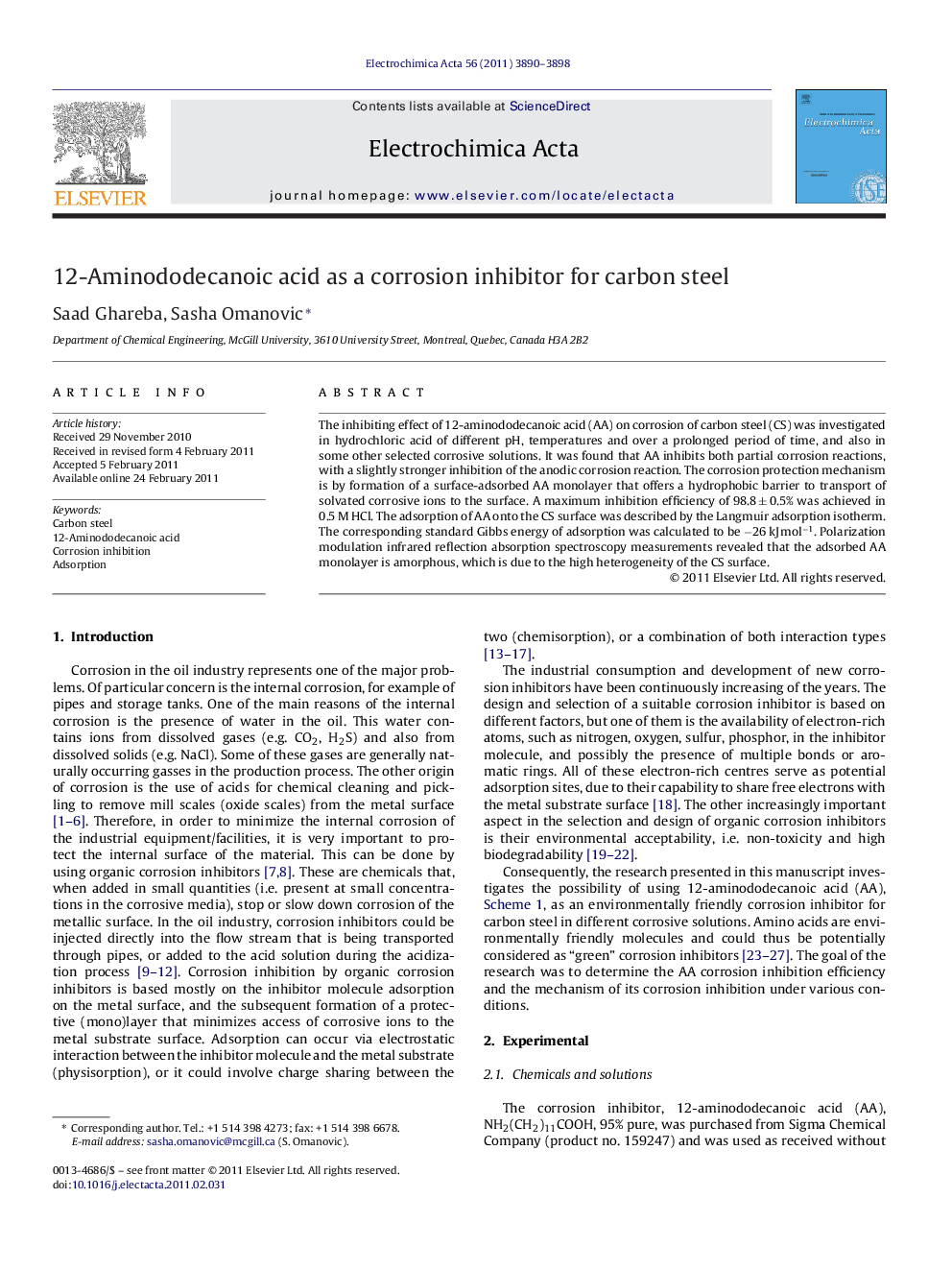| Article ID | Journal | Published Year | Pages | File Type |
|---|---|---|---|---|
| 190240 | Electrochimica Acta | 2011 | 9 Pages |
The inhibiting effect of 12-aminododecanoic acid (AA) on corrosion of carbon steel (CS) was investigated in hydrochloric acid of different pH, temperatures and over a prolonged period of time, and also in some other selected corrosive solutions. It was found that AA inhibits both partial corrosion reactions, with a slightly stronger inhibition of the anodic corrosion reaction. The corrosion protection mechanism is by formation of a surface-adsorbed AA monolayer that offers a hydrophobic barrier to transport of solvated corrosive ions to the surface. A maximum inhibition efficiency of 98.8 ± 0.5% was achieved in 0.5 M HCl. The adsorption of AA onto the CS surface was described by the Langmuir adsorption isotherm. The corresponding standard Gibbs energy of adsorption was calculated to be −26 kJ mol−1. Polarization modulation infrared reflection absorption spectroscopy measurements revealed that the adsorbed AA monolayer is amorphous, which is due to the high heterogeneity of the CS surface.
► Inhibition efficiency of 12-aminododecanoic acid (AA) for carbon steel was studied. ► A maximum inhibition efficiency of 98.8 ± 0.5% was achieved in 0.5 M HCl. ► High inhibition efficiency is achieved within 30 min of the application of AA. ► The high corrosion inhibition efficiency was maintained over a period of 72 h. ► AA is an effective inhibitor of CS general corrosion in several other electrolytes.
